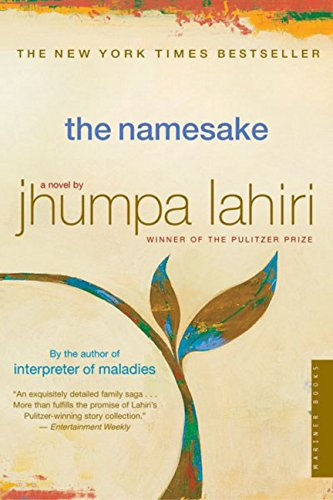"The Namesake"
- Featured Writer/Artist

- Sep 4, 2020
- 2 min read
This multigenerational masterpiece illustrates the power of perspective and immigrant identity. Lahiri spotlights the divide between the first generation-immigrant parents and their children to examine the nuances of being caught between two worlds, two cultures, and two seemingly conflicting ideologies. The novel follows Ganguli family - a Bengali (Indian) family through their journey in the US as they combat language barriers, cultural differences, and social stereotypes. But Lahiri is careful to detail the good times: graduations, birthdays, and above all unconditional love. Told mostly through the perspective of their eldest son, Gogul, Lahiri showcases the triumphs and tribulations many immigrants, specifically Asian-Americans, go through as they navigate a society where only 5.6% of the population looks like them. Lahiri develops a refreshing portrayal of many social and emotional themes like cultural identity, alienation, acceptance, and family. A central aspect of the novel is Gogul's desire to change his name to regain control of his identity in the face of all the stereotypes against him. Although he loathes how his name makes him different, his parents are heartbroken and urge him to remember the significance it holds to their personal history. Lahiri's rhetoric purposefully captures the immigrant struggle through Gogul's namesake. Lahiri highlights that infamous question so many AAPI ask themselves- Am I Asian Enough? Am I American Enough? She argues against the dichotomy - how you don't have to choose the two, but rather embrace the best of both.
Nilanjana Sudeshna "Jhumpa" Lahiri, born to Indian immigrants living in London, is a Pulitzer Prize winning author and Professor of Creative Writing at Princeton University. Lahiri grew up in Rhode Island where she cites her early struggles with cultural identity, feeling "intense pressure to be two things, loyal to the old world and fluent in the new." She graduated from Columbia University in 1989 where she began writing and teaching creative writing classes. After years of facing rejection from publishers, her short story collection Interpreter of Maladies released in 1999. After winning countless awards, Lahiri published her first novel, The Namesake. Since then, she has published many other critically acclaimed works such as Lawland (novel) and Unaccustomed Earth (short stories). Most of Lahiri's work is autobiographical fiction, detailing the experiences of Indian-American immigrants and the pressures of assimilation. In 2009, Lahiri won the Asian American Literary Award, making her as a role-model for budding writing in the Asian community.
Originally created and posted on Instagram: @creativelyasian. Click to go to the original post!







Comments